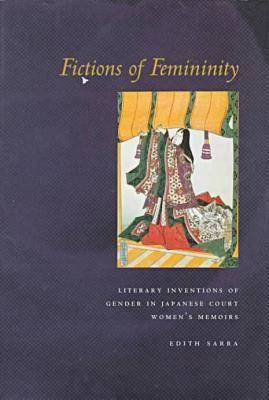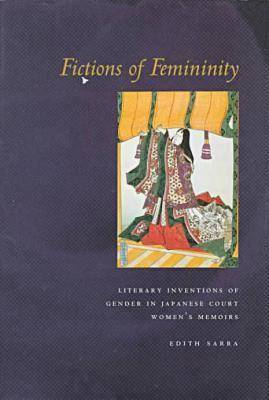
- Retrait gratuit dans votre magasin Club
- 7.000.000 titres dans notre catalogue
- Payer en toute sécurité
- Toujours un magasin près de chez vous
- Retrait gratuit dans votre magasin Club
- 7.000.0000 titres dans notre catalogue
- Payer en toute sécurité
- Toujours un magasin près de chez vous
Fictions of Femininity
Literary Inventions of Gender in Japanese Court Women's Memoirs
Edith SarraDescription
The history of Japanese memoir literature began over a thousand years ago, its greatest practitioners being women of the "middle ranks" whose literary talents won many of them positions as ladies-in-waiting at the Heian imperial court. As female writers they both inhabited and helped create a discursive world obsessed with the arts of concealment and self-display, the perils and possibilities--erotic, political, and literary--of real and metaphorical peepholes. As memoirists they were virtuosos in the exacting art of feminine self-representation.
Fictions of Femininity explores the Heian memoirists' creations of themselves in four texts: Kagero nikki (The Kagero Memoir, after 974), Makura no soshi (The Pillow Book, after 994), Sarashina nikki (The Sarashina Memoir, after 1058), and Sanuki no suke nikki (The Memoir of the Sanuki Assistant Handmaid, after 1108). Essays on the individual memoirs pursue a dual interest, asking how each text works as a rhetorical construct and how it reflects the author's negotiations with Heian fictions about women and writing.
Letting the memoirs themselves set the terms for exploring gender constructions, Fictions of Femininity addresses a spectrum of related issues. The reading of The Kagero Memoir probes two traditional avenues of feminine expression: the writing of waka and the discourse of Buddhist nunhood. Two essays on The Sarashina Memoir reveal a fine weave of literary, religious, and autoerotic fantasies, highlighting the intellectual gifts of a memoirist long misread as naive and girlish.
The essay on The Memoir of the Sanuki Assistant Handmaid examines the use of spirit possession as metaphor for commemorative writing, tracing the balancing act its author performed in the midst of political intrigues at court. The relationship between the memoir and voyeurism takes center stage in the closing essay on The Pillow Book, which compares its author's treatment of the thematics of "seeing and being seen" with that of her chief rival, Murasaki Shikibu, creator of The Tale of Genji. Taken together, the essays in this book underscore the diversity of the Heian memoirists' responses to their roles as women and as writers in one of the most unusual epochs of Japanese history.
Spécifications
Parties prenantes
- Auteur(s) :
- Editeur:
Contenu
- Nombre de pages :
- 344
- Langue:
- Anglais
Caractéristiques
- EAN:
- 9780804733786
- Date de parution :
- 01-03-99
- Format:
- Livre relié
- Format numérique:
- Genaaid
- Dimensions :
- 162 mm x 237 mm
- Poids :
- 539 g

Les avis
Nous publions uniquement les avis qui respectent les conditions requises. Consultez nos conditions pour les avis.






